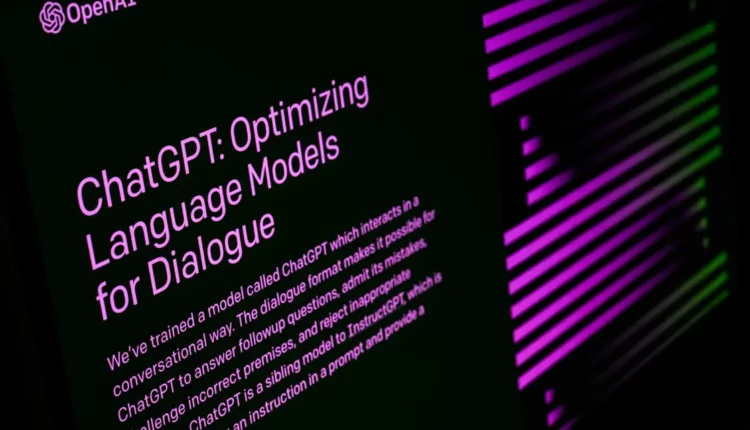©2021 Reporters Post24. All Rights Reserved.
Several popular Chinese apps have removed access to ChatGPT, the artificial intelligence chatbot that has taken the world by storm even as major Chinese tech companies race to develop their own equivalent.
ChatGPT, developed by the American research lab OpenAI, is not officially available in China, but several apps on the Chinese social media platform WeChat had previously allowed access to the chatbot without the use of a VPN or foreign mobile number.
Those doors now appear shut. Earlier this week, the apps ChatGPTRobot and AIGC Chat Robot said their programs had been suspended due to “violation of relevant laws and regulations,” without specifying which laws.
Two other apps, ChatgptAiAi and Chat AI Conversation, said their ChatGPT services went offline due to “relevant business changes” and policy changes.
The app Shenlan BL was even more vague, citing “various reasons” for the shutdown.
Though it’s unclear what prompted these closures, there are other signs China may be souring on ChatGPT. On Monday, state-run media released a video claiming the chatbot could be used by US authorities to “spread disinformation and manipulate public opinion,” pointing to its responses regarding Xinjiang as supposed evidence of bias.
When prompted on Xinjiang, ChatGPT describes the Chinese government’s alleged human rights abuses against ethnic minorities in the far western region, including mass detentions and forced labor. Beijing has repeatedly denied these accusations, claiming detention camps are “vocational education and training centers” that have since been dismantled.
Other recent state media articles have voiced criticism and skepticism toward ChatGPT, with China Daily declaring that its rise highlights the need for “strict regulations.”
Several Chinese tech companies saw their shares drop on Thursday after news spread that WeChat apps had removed ChatGPT services. Beijing Haitian Ruisheng Science Technology, which develops and produces AI data products, closed 8.4% lower.
Meanwhile, Hanwang Technology and Beijing Deep Glint Technology, both developers of AI products and services, closed 10% and 5.5% lower respectively.
Global AI race
ChatGPT burst onto the scene in December, quickly going viral thanks to its ability to provide lengthy, thorough — though sometimes inaccurate — responses to questions and prompts.
Since its release, the tool has been used to write articles for at least one news publication, drafted research paper abstracts that fooled some scientists and even passed graduate-level law and business exams (albeit with low marks).
It has also prompted alarm about its unknown long-term consequences, such as its impact on education and students’ ability to cheat on assignments.
Despite these concerns, the success of ChatGPT has spurred a global AI race.
Microsoft plans to invest billions in the San Francisco-based OpenAI and unveiled its AI-powered Bing chatbot last week, though it made headlines for veering into darker, sometimes disturbing conversation. Earlier this month, Google announced it will soon roll out Bard, its own answer to ChatGPT.
China’s government has previously sought to restrict major Western websites and apps, such as Google, Facebook and Amazon, leading to accusations from some of digital protectionism.
In the absence of foreign competition within the domestic market, Chinese tech companies have since grown into major international players — many of which are now revving their gears with an eye toward AI.
In early February, Chinese behemoth Alibaba said it was testing its own ChatGPT-style tool, though it didn’t provide details on when it would launch.
A team at China’s Fudan University developed their own version called MOSS, which instantly went viral, causing the platform to crash this week due to too many users.
And on Wednesday, tech giant Baidu said its AI chatbot ERNIE Bot, slated for a March release, will be used across various platforms such as its search engine, voice assistant for smart devices and even its autonomous driving technology.
The rollout will “create a new entry point for the next-generation internet,” Baidu CEO Robin Li said in an earnings call, adding that the company expects “more and more business owners and entrepreneurs to build their own models and applications on our AI Cloud.”


